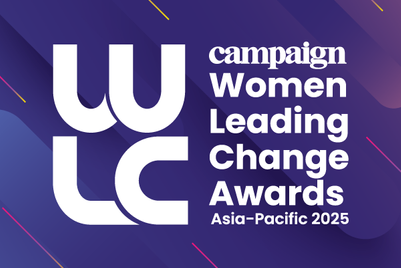Dalima Chhibber, a member of the Indian women’s football team, was a part of the inaugural edition of Women Leading Change in India, the theme of which was breaking stereotypes.
During the
event, Chhibber discussed the stereotypical responses she got when she told people she was pursuing a career in football.
In the excerpts below, read the full conversation we had with Chhibber, who was part of the squad that participated in the AFC Women’s Asian Cup which was hosted earlier this year in India.
When you told people you were following a career path in football, were there any stereotypical responses?
While growing up there were not many women who had an interest in pursuing a career in sport. The number of them picking football as a career were even lesser.
So, it was difficult to explain to people that I wanted to be a footballer. Football is such a physical sport and people would pass stereotypical comments like you’ll get hurt or you’ll break a leg.
Coming across these comments wasn’t the best feeling.
Becoming a footballer was a dream I’d seen for myself. Every time I was stepping out on the field, I felt I had to prove myself, whether it was playing for my school team, state team or the national team.
Growing up in Delhi, academics have always been the major focus. So tuitions were considered to be more important than training sessions. When I was in my 12th grade, I was playing for the national team and my state team, and playing games around the year. I missed my pre-boards and people were worried about my education and that’s when I heard an even more stereotypical statement that girls (or boys) that played a sport were ‘nikammas’ (useless). That wasn’t a problem for me, and I could balance my studies and training sessions.
It requires just one person to step up and prove that it can be achieved, for others to follow. And I’ve seen the proof of the above statement, as so many more girls from my school are picking football as a career. I scored 92% in my board exams, and now I see my example given to so many students in my school.
When I look at my dad’s club now, who is also my coach, there’s an equal amount of girls and boys training for a career in the sport.
Has there been brand interest in women's football in India? Have many brands approached you to endorse their products?
It has changed and improved in the past couple of years, but there’s still a long way to go. In women’s football, only a handful of players have brands on board. Brand endorsements are very important for us athletes because if you’re playing at a professional elite level, it’s important for your demands to be catered to. You can’t keep stressing about things like nutrition. If all of it is catered to, then the athlete just needs to focus on the performance.
While choosing a brand to endorse, how important is it to align with a brand that resonates with your calling? Have you turned down any brand associations in your career so far?
The first brand endorsement that came my way was from Steadfast Nutrition. It was newly launched when they approached me. I was extremely anxious when they approached me as I didn’t have a team that helped me make my decisions back then. I heard the brand’s mission and vision and signed up. I look at areas that I would require support in (as an athlete) and partner accordingly, instead of saying yes to all collaborations.
I’ve had other brands in the space of sportswear and apparel that have approached me and I have partnered with most of them. Like I mentioned before, there are not too many brands that are looking to partner with women footballers.
You have spoken about mental health and being a student of sports psychology, what initiatives/strategies do you support to help women on and off the field?
I’m still in the process of completing my masters (from a university in Canada). In the long term, I plan to merge psychology and sport. I want to highlight the importance of mental health for athletes.
In the past six months, while I was in the bubble with the national team preparing for the AFC Asian Cup, there were times when athletes would face mental health issues. There was no outlet to relax and let it all out because we weren’t allowed to step out of our hotels.
During those times I took the initiative to come up with activities and do something to lighten the mood of the athletes. There’s a lot that an athlete has to give up during the journey – you’re away from your family and loved ones, and during the camp, I wanted my teammates to feel lighter and be ready for the training sessions.
How would you define ‘Brand Dalima’ in a sentence?
If you could believe it, you could achieve it.




.jpg&h=334&w=500&q=100&v=20250320&c=1)


.png&h=334&w=500&q=100&v=20250320&c=1)






.png&h=268&w=401&q=100&v=20250320&c=1)






